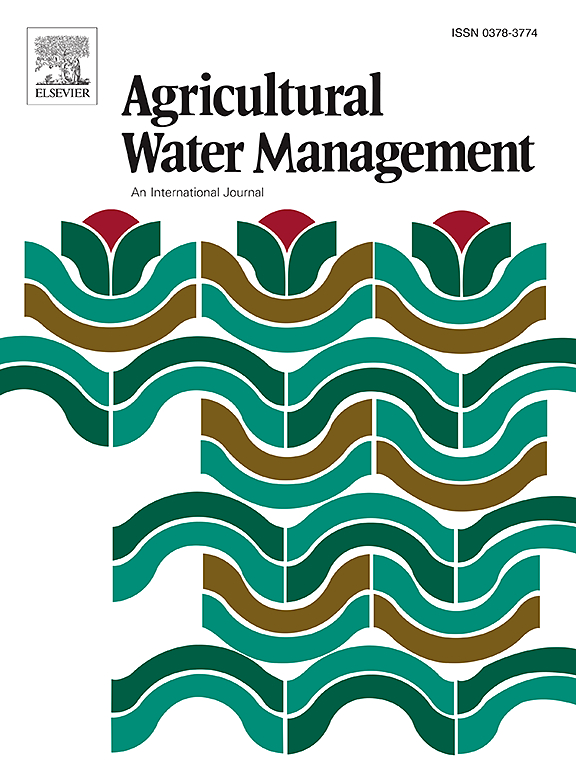Assessing sustainable water management in a resource-scarce environment (Ghana, West Africa) via the Analytic Hierarchy Process
IF 5.9
1区 农林科学
Q1 AGRONOMY
引用次数: 0
Abstract
Fresh water is indisputably a vital resource in ecosystems and its scarcity threatens the economy and society. Due to climate change, economic growth and unsustainable water management, water systems have become depleted and very contaminated worldwide. The scarcity and ecological degradation of water resources have threatened the sustainability of human life, socio-economic development and ecosystem services. The key element in an efficient management is the dynamic assessment of the status of water resources. Thus, this work developed a comprehensive evaluation indicator system based on the Driver-Pressure-State-Impact-Response (DPSIR) framework, combined with the Analytic Hierarchy Process (AHP).
The study offers an applied-friendly way of assessing sustainable water management in a resource-scarce environment through a stakeholder engagement approach. This facilitates assessing and reporting the state of water resources in a selected watershed in Ghana. The analysis highlights the components of climate regime and mining activities to demonstrate the greater threats to the water systems of the region. The results clearly illustrate that strengthening stakeholders’ involvement, improvement of infrastructure and implementation of the existing policies are among the higher-ranked responses that would guarantee the sustainability of water resources in the region. Furthermore, the research provides detailed information on human activities and their impacts on water systems in a quick and easy way for local stakeholders and policymakers, so as to support sustainable water management. The overall approach can be easily implemented and expanded in several water management cases.
通过层次分析法评估资源稀缺环境(西非加纳)的可持续水管理
淡水无疑是生态系统的重要资源,其短缺威胁着经济和社会。由于气候变化、经济增长和不可持续的水管理,世界各地的水系统已经枯竭并受到严重污染。水资源的稀缺和生态退化已经威胁到人类生活、社会经济发展和生态系统服务的可持续性。有效管理的关键因素是对水资源状况的动态评估。因此,本工作基于驾驶员-压力-状态-影响-响应(DPSIR)框架,结合层次分析法(AHP)开发了一个综合评价指标体系。该研究提供了一种应用友好的方法,通过利益相关者参与的方法来评估资源稀缺环境下的可持续水资源管理。这有助于评估和报告加纳选定流域的水资源状况。该分析强调了气候制度和采矿活动的组成部分,以表明对该区域水系统的更大威胁。结果清楚地表明,加强利益相关者的参与、改善基础设施和实施现有政策是保证该地区水资源可持续性的较高级别的应对措施。此外,该研究还为当地利益相关者和决策者提供了有关人类活动及其对水系统影响的详细信息,从而支持可持续的水管理。在几个水管理案例中,可以很容易地实施和扩展总体方法。
本文章由计算机程序翻译,如有差异,请以英文原文为准。
求助全文
约1分钟内获得全文
求助全文
来源期刊

Agricultural Water Management
农林科学-农艺学
CiteScore
12.10
自引率
14.90%
发文量
648
审稿时长
4.9 months
期刊介绍:
Agricultural Water Management publishes papers of international significance relating to the science, economics, and policy of agricultural water management. In all cases, manuscripts must address implications and provide insight regarding agricultural water management.
 求助内容:
求助内容: 应助结果提醒方式:
应助结果提醒方式:


